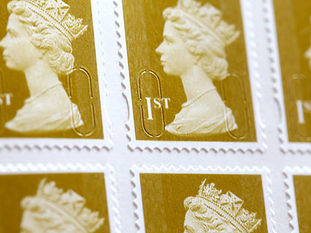This week, we ask experts for their views on the outcome and impact of the Competition and Markets Authority’s investigation into the £15 billion merger of two of Britain’s biggest mobile phone companies.
Interview One
The UK telecoms market is likely to undergo a significant change with Vodafone and Three expected to get approval for their controversial £15bn merger, a senior expert has told Hartford.
The expert, who has held senior roles at several major telecoms firms in the last two decades, believes the Competition and Markets Authority (CMA) will give its backing to the creation of Britain’s biggest telecoms company with 27 million customers.
There are two main reasons why the CMA is likely to support the deal, the expert said. These are the firms’ promise of an £11bn investment in mobile network infrastructure over the next ten years and the overall strength and competitiveness of the telecoms market currently.
The expert believes these overarching factors will be enough to temper critics’ fears that the reduction of licenced mobile network operators from four to three (the others being EE and O2) would lead to higher consumer prices.
Weaker competition, which is where the CMA has its biggest concerns, will be offset by the huge customer experience benefits that the £11bn investment would bring – according to the expert.
In fact, they argued the merger would not “massively diminish” competition as the three mobile network operators in place post-merger would have a similar share of the market – albeit with EE thought to be out in front.
Importantly, the expert indicated the CMA would probably attach conditions to the merger, which are likely to have implications for the rest of the market.
The most obvious condition is to redistribute spectrum, which – put simply – means ensuring the merged company will not have too big a share of the UK’s wireless communication capacity.
The CMA may order the merged company to offset some of its spectrum to other network operators, or even one of the bigger mobile virtual network operators (MVNO) -which use the networks of the four licenced mobile operators - to balance communication capacity proportionately. One such MVNO could be Sky, which is fast-growing and has some fixed infrastructure in place.
Investors with interests in MVNOs that use Vodafone or Three’s networks should prepare for a period of interrupted services while the networks are merged, the expert said.
Additionally, investors should remember that previous mergers between mobile network companies have often seen the parties become quite internally focused, which presents opportunities for competitors to win new customers.
Interview Two
Britain’s competition regulator appears to be getting ready to reject the controversial £15bn merger between Vodafone and Three, despite the plan being in the best interest of the sector - according to an industry expert.
Such a decision would be a blow to the telecoms sector which needs investment in the UK’s mobile network infrastructure, the expert – a former senior government and telecoms director – told Hartford.
The expert felt the Competition and Markets Authority (CMA) appears to be looking in “every nook and cranny” for reasons to block the proposal, in what would be a “watershed moment” for the regulator.
This prediction was based on the information released as part of the CMA’s second phase of its investigation. These documents suggest that the CMA still believes the negative impact the merger would have on consumer choice and prices will eclipse any potential benefits of the companies’ promised investment in the mobile network infrastructure, the expert explained.
They accused the CMA of focussing purely on the retail and competition elements of the deal, without paying heed to the failure of initiative to use competition to drive investment in the infrastructure.
Only about 20 per cent of the UK population can access standalone 5G, and – based on current progress – the country will struggle to get to 30 per cent, the expert said.
With the cash-strapped government unable to fund improvements to the mobile network infrastructure, there are no other obvious sources of investment beyond that offered by Vodafone and Three.
The expert said the CMA’s concern about the level and benefits of the investment could be addressed by making it a formal condition of the merger.
While this would raise separate questions around how such a condition would be enforced, it would help to offset the impact of having one less major player in the market – they argued. However, the CMA may need Ofcom, the government’s regulator for the telecoms industry, to agree to this condition becoming part of an approved merger. Ofcom’s views on the Vodafone/Three plan are not known.
Another factor thought to be concerning the CMA significantly is the adverse impact the merger would have on mobile virtual network operators (MVNO), according to the expert.
Its investigators have been exploring the impact on this group of operators amid fears a reduction of mobile network operators will make it harder for MVNOs to negotiate good deals for customers. The expert indicated these fears are yet to be allayed by Vodafone and Three.
Related Posts
Need more information?
You can contact us using the following details or by using our online form:
Email: info@hartfordadvisers.co.uk
Phone: +44 203 916 6167









